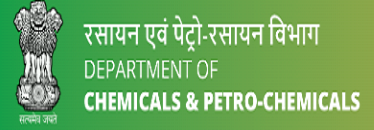Information About the Convention
The CWC comprises a Preamble, 24 Articles, and 3 Annexes—the Annex on Chemicals, the Verification Annex, and the Confidentiality Annex.
The raison d’être of the Chemical Weapons Convention is expressed most succinctly in the Preamble, “. . . Determined for the sake of all mankind, to exclude completely the possibility of the use of chemical weapons, through the implementation of the provisions of this Convention.” It goes on to mention the benefits of peaceful chemistry and the desire to promote free trade in chemicals and international cooperation in chemical activities not prohibited by the Convention. Read Preamble
Article I sets out the general obligations of each State Party under the Convention. The Convention prohibits a State Party from using chemical weapons or engaging in military preparations to use chemical weapons. A State Party is also never to “develop, produce, otherwise acquire, stockpile, or retain chemical weapons, or transfer, directly or indirectly, chemical weapons to anyone”. Likewise, a State Party may not promote or aid any activity—perpetrated by individuals, groups, or another State—prohibited by the Convention. Under Article I, a State Party must destroy all chemical weapons stockpiles in its possession as well as all chemical weapons production facilities (CWPFs) on its territory and any chemical weapons it might have abandoned on the territory of another State Party. Also under Article I, the use of riot control agents (e.g. tear gas) is prohibited as a method of warfare. Read Article I
Article II of the CWC sets out the definitions and criteria to be used in implementing the Convention. Among those terms defined are “chemical weapon”, “toxic chemical”, “precursor”, “old chemical weapons”, “abandoned chemical weapons”, “riot control agent”, “chemical weapons production facility”, and other terms related to the industry verification regime: “production capacity”, “processing”, “consumption”, etc. Read Article II
Article III requires each State Party to submit declarations to the OPCW within 30 days after the Convention enters into force for that particular State Party. A State Party must declare its possession of chemical weapons and/or CWPFs and its plans for destroying them. It must also declare any other facilities designed for the development of chemical weapons, such as laboratories, and its possession or non-possession of riot control agents. These declarations also detail whether or not a State Party has old chemical weapons on its territory and if it has abandoned chemical weapons on the territory of another State Party or if a State Party has abandoned such weapons on its territory. Chemical weapons that have been buried on land after 1977, or were dumped at sea after 1 January 1985, are also declarable. Read Article III
Articles IV and V relate to the requirement for States Parties to destroy their chemical weapons and CWPFs, including the submission of detailed plans for destruction and annual declarations on the status of destruction operations. In the case of CWPFs, States Parties may request that they be converted for use for peaceful, non-prohibited purposes. The States Parties themselves are responsible for the costs of destruction and/or conversion and for the costs of verification of destruction activities by the OPCW. It is intended that destruction and/or conversion activities be completed within 10 years of the Convention entering into force. The Convention provides for the possibility of a one-time extension of the final chemical weapons destruction deadline by up to five years, to 2012. Read Articles IV and V
Article VI covers “activities not prohibited under this Convention”, otherwise known as the non-proliferation or industry verification regime. The States Parties must ensure that toxic chemicals and their precursors are only developed, produced, transferred and used for peaceful purposes. Facilities that produce Scheduled chemicals and discrete organic chemicals are subject to control and reporting mechanisms implemented by the State Party, and to inspection by the OPCW. Read Article VI
Article VII covers national implementation of the Convention and requires each State Party to enact implementing legislation at the national level, to criminalize the Convention’s prohibitions in the context of national penal law, and to inform the OPCW of the measures taken to implement the Convention. Under this Article, States Parties pledge to cooperate in the areas of legal assistance, safety, and the environment. This Article also requires the establishment of a National Authority to liaise between the State Party and the OPCW. Read Article VII
Article VIII establishes the Organisation for the Prohibition of Chemical Weapons, or OPCW, as the implementing body of the Convention, with headquarters in The Hague, The Netherlands. The Organisation is comprised of three main organs or bodies: the Conference of the States Parties, the Executive Council, and the Technical Secretariat. Article VIII delineates the roles and functions of each body. Read Article VIII
Article IX provides for the consultation and clarification if concerns about possible non-compliance arise. In addition, the procedures for requesting and carrying out a challenge inspection in any State Party if its compliance with the Convention is in doubt are provided. Any State Party may request a challenge inspection, anywhere on the territory of another State Party. Read Article IX
Articles X and XI provide for, respectively, assistance and protection to a State Party if it is attacked or threatened with attack by chemical weapons, and international cooperation for the economic and technological development of States Parties. Under Article X, each State Party must inform the OPCW of the type(s) of support it can give to assistance and protection efforts. Article XI promotes trade in chemicals for peaceful purposes and the development of chemistry in all States Parties for purposes not prohibited under the Convention. Read Articles X and XI
Article XII deals with measures to ensure compliance, including sanctions against a State Party that fails to uphold its treaty obligations. Apart from imposing measures of redress or penalties, or restrictions on rights and privileges, etc., the Conference shall bring cases of particular gravity to the attention of the United Nations General Assembly and the Security Council. Read Article XII
Articles XIII through XXIV deal with various issues such as relations with other international treaties, the settlement of disputes, amendments to the Convention, duration and withdrawal, entry into force, etc. Read Articles
Of the three annexes, the Verification Annex is the most extensive. It sets out all of the detailed procedures to be followed by the States Parties and by OPCW inspection teams during verification/inspection activities at chemical weapons facilities or sites and industrial facilities. The Annex on Chemicals delineates the three Schedules, and the Confidentiality Annex guarantees the protection of sensitive, national security related information and confidential business information during inspections and when such information is submitted by States Parties to the OPCW.














